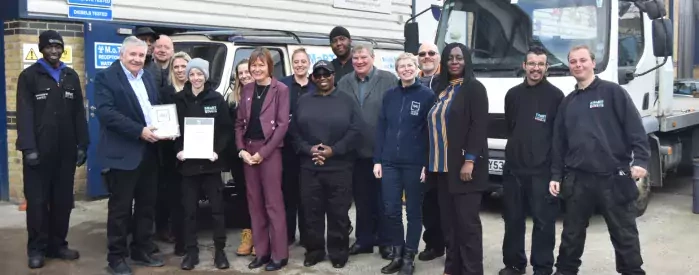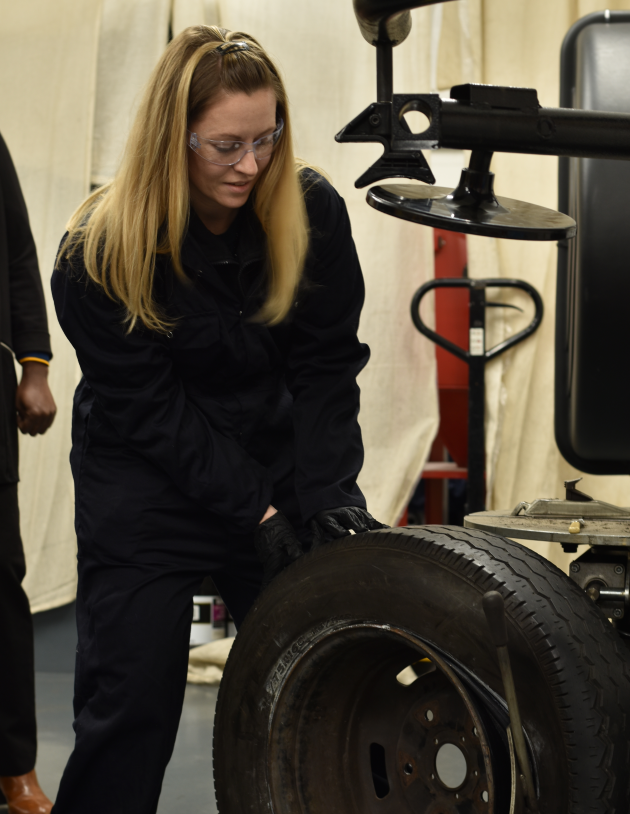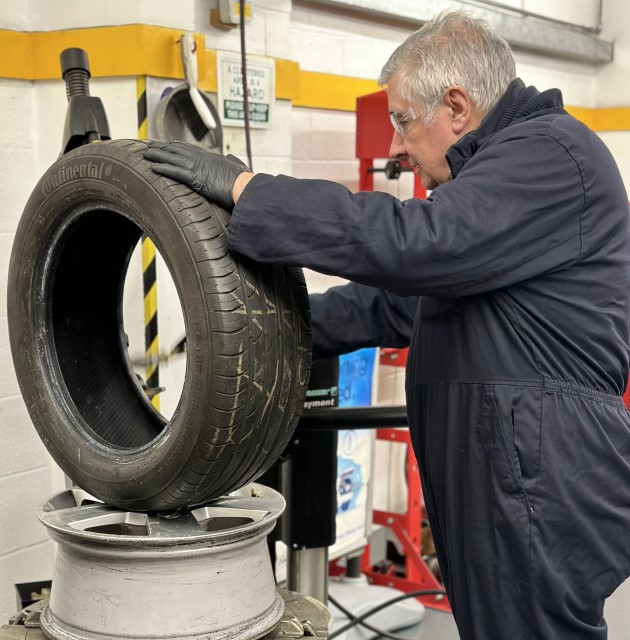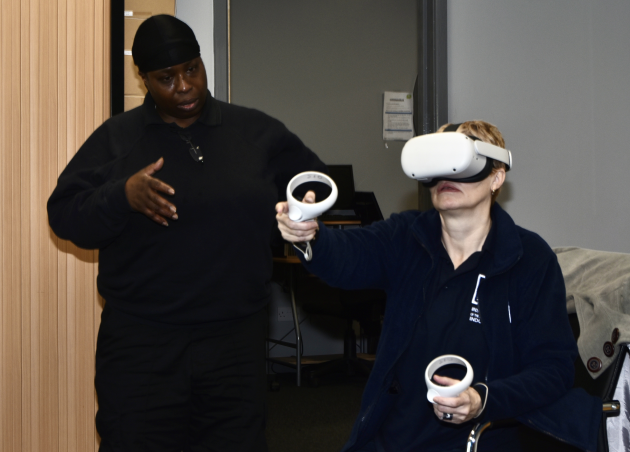Trading Places

First Step Trust’s Trading Places project opens the doors to the workshop, bringing in senior executives to work alongside people with mental health problems and other challenges to discover just what people can do when given the opportunity
“The idea is getting people to understand the strengths of others, learning that people could be productive employees if they’re given the opportunity” Ronnie Wilson, Chief Executive, First Step Trust
Everyone understands that the automotive industry needs to attract more talented people into the sector if it wants to remain successful. To achieve that it needs to cast its net wider to find the skilled and enthusiastic people to drive it forward. But that doesn’t always happen.
There’s sometimes a lack of empathy and understanding for people who have had difficult moments in their lives, but when given the right support they can become a core part of a business. The challenge is how you change the direction of automotive and persuade companies to rethink their approach to bringing in new people from a range of backgrounds.
Stigmatisation is an issue that’s putting the brakes on some people being able to build a successful automotive career. Mention mental health and some instantly take a step back, but it shouldn’t be like that, and First Step Trust’s Trading Places project is positively challenging people’s perceptions.

“I want participants to meet people as competent workers,” says Ronnie Wilson, Chief Executive of First Step Trust. “They come along, do a session, get to know people who may have mental health problems, and find out how they’ve been supported so they can learn and develop.”
As Wilson says, negative mental health is a lottery you don’t want to win, but it doesn’t have to be the end of the conversation. “The idea is getting people to understand the strengths of others, learning that people could be productive employees if they’re given the opportunity.”
First-hand experience
Trading Places was an opportunity the IMI was keen to embrace in its determination to improve the industry as part of its drive for diversity and inclusion.
A group from the IMI, which included IMI President Professor Jim Saker, IMI Careers and Student Membership Manager Joanna Hollingdale, IMI Product Specialist Dr Pam Phillippo, IMI Business Development Manager Michelle Barrett, and IMI Executive Assistant Dee McHugh, all headed to Trading Places in Woolwich, South East London to try their hand at different workshop tasks, learn the different approaches to training, and most importantly, talk with the people Wilson is trying to support.
“We had Professor Jim Saker and others from the team here meeting people,” says Wilson. “They had an opportunity to talk with people in the workshop and see how virtual reality training can help people with disadvantages overcome some of the barriers to employment.”

This experience was invaluable for the IMI team, giving them an opportunity to talk directly with people who haven’t had the easiest path to a successful career, but with a little support have made great inroads. It also highlighted how new technologies can make a big difference, especially virtual reality.
“There’s no point in putting folk into jobs if they don’t actually have the skills to do it,” continues Wilson. “What virtual reality does is begin to level the playing field, helping to build confidence and competence. That applies to folk who are being disadvantaged in the labour market because of mental health or drug and alcohol recovery problems, and folk that have been victims of homophobia, chauvinistic attitudes to women, or racism, negativities that can stifle people’s development very often from a young age. Virtual reality opens up a new way of supporting that group.”
Open up to opportunity
For Trading Places to make real change in the industry, more people need to take part and adopt some of its approaches, expanding the opportunities for those who would love to work in automotive but have faced certain challenges.
Wilson’s message is straightforward: “I would like more executives to visit Trading Places and look at the programmes that we’re doing such as virtual reality, and see if it’s something that fits them. If it helps open up their business to folk with disadvantages, they would actually be bringing in people who are productive, and everybody’s a winner.”
Automotive offers so many career opportunities, but it hasn’t always been open or supportive enough to help people make the move into the sector. The more it can, the less the skills squeeze will be an issue. The starting point may well be simply getting people to spend time talking to find out how the industry can be more open and supportive.
“You have to understand the breadth of what society is” - IMI President Professor Jim Saker on how to change industry attitudes.
“It was very illuminating and a fascinating exercise putting yourself in somebody else’s shoes, which I think is incredibly important. If you want to be a modern transformational leader in today’s world, you have to understand the breadth of what society is, and Trading Places helps you do that.
“For me, it was about understanding what is possible in a world where you make reasonable adjustments in the workplace. My takeaway is that I didn’t fully understand it beforehand, didn’t fully grasp what was required, but now I do, and that’s a positive for the IMI and our work.
“The challenge is encouraging people to do this particular type of type of work because this is something that needs to be done from the top downwards. Senior people need to engage in this process so that they understand and can create a strategy that helps them engage with a wider range of society.
“With greater engagement, I think it could take off. People and organisations could help fund and support this activity and put something back into society – something positive, not just tokenism.
“There’s a palpable sense of community and belonging” - Dr Pam Phillippo, IMI Product Specialist, on the open atmosphere at First Step Trust.
“First Step Trust’s Trading Places uses virtual reality to remove barriers to learning, transforming the experience for people with mental health problems or other disadvantages.

“VR programmes help people learn marketable skills in a virtual world, using the range of equipment found in most garages. Trainees are offered the opportunity to undertake a work placement at First Step Trust’s garage in Woolwich, London to further develop their confidence and learn skills in a range of tasks. I was taken through the VR programme and then had an opportunity to visit the workshop to put some of that learning into practice.
“First Step Trust has established a psychologically safe environment, and there’s a palpable sense of community and belonging. I was moved by the way in which trainees were able to speak so openly about their own particular challenges and what First Step Trust has meant to them.”




